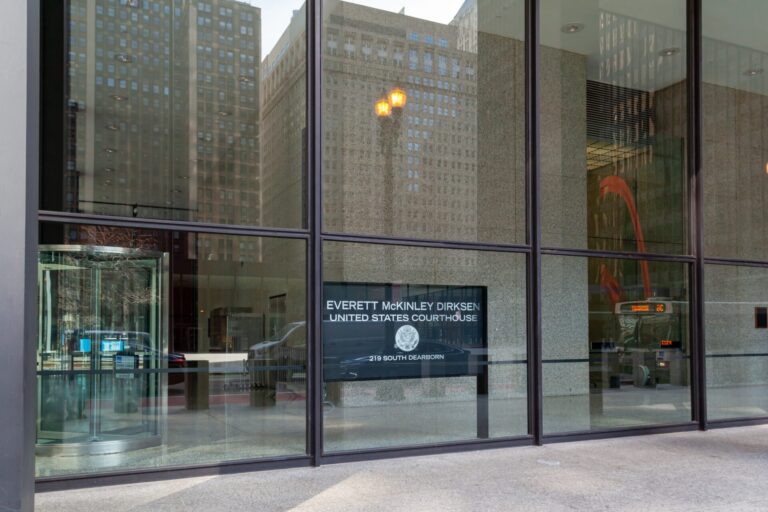Florida PSC Nominating Council Set to Interview and Vote on Finalists
Florida PSC Nominating Council Set to Interview and Vote on Finalists
Update: The Public Service Commission (PSC) Nominating Council voted to send the following applicants to Governor Scott to fill two vacancies on the PSC: Commissioner Ronald Brisé (11 votes), Commissioner Art Graham (11 votes), Former Rep. Kenneth W. Littlefield (7 votes), Mayor William H. Conrad (8 votes), Anibal I. Taboas (9 votes in second round), and Jody Ann Newman (8 votes in second round).
The council also voted to send the names of Mayor William H. Conrad (8 votes), Erik L. Sayler (7 votes), Ted Schrader (7 votes), Former Rep. Richard Glorioso (9 votes), Gary F. Clark (10 votes), and Former Rep. David Richard Workman (8 votes) to Governor Scott for his appointment to fill the third vacancy on the commission.
PSC Nominating Council member Jennifer William was not in attendance.
On Thursday August 17, the Florida Public Service Nominating Council is scheduled to interview and vote on finalists for the three open seats on the Public Service Commission. Commissioner Jimmy Patronis’ seat is vacant, and both Commissioners Ronald Brisé’s and Art Graham’s terms are up in January, although both have submitted applications for their respective positions. POLITICO has a summary of the other finalists.
The nominating council is tasked with providing a list of the most qualified candidates for Governor Rick Scott to then appoint, which are then still subject to Senate approval. Nevertheless, the council has an important first decision to make – one that could significantly change the makeup of the regulatory body and one that is sign of whether or not the council approves of the decisions the PSC has been making.
The Sun Sentinel Editorial Board recently published an editorial, “Florida’s broken system for selecting utility watchdogs,” in which they write:
“[The] process of selecting PSC members has become a theater of the absurd, for which utility customers are paying an intolerable admission price …
A similarly seedy situation exists today, with utility companies contributing heavily to the campaigns of state lawmakers, who in turn serve on the PSC nominating council or appoint those who do. History shows these lawmakers favor applicants friendly to the utilities they are supposed to watchdog …
someone needs to speak up for everyday consumers, not just the special interests in Tallahassee.”
Energy and Policy Institute looked at the members of the council, specifically the elected officials that have appointed members to the council over the years, the elected officials that are currently on the council, and their campaign contributions from the state’s investor-owned elected utilities and several oil and gas companies.
The more than $165,0000 that have been contributed by the power and fossil fuel companies to the officials throughout their careers highlighted in the chart does not even take into account the funds contributed by other companies regulated by the PSC, particularly the communication companies and water utilities.
The six non-elected officials that sit on the council are:
- Tim Herndon, appointed by Senate President Don Gaetz. Herndon is partner-in-charge of the Niceville and Crestview offices of Carr, Riggs, & Ingrams (CRI), which is an accounting firm offering tax, audit, and advisory services.
- Jennifer Williamson, appointed by Senate President Gardiner. Williamson is a partner with the Crary Buchanan Law Firm and is board certified in real estate law and also practices business and corporate law.
- Brian Powers, appointed by Senate President Negron. Powers is President at Indiantown Gas Company, a residential and commercial supplier of propane.
- Christopher J. Maier, appointed by Speaker Corcoran. Maier is District Manager of Small Cell & Fiber Solutions for Crown Castle, a wireless infrastructure company. Maier was also a network planning manager for Verizon Wireless.
- Seth D. Weightman, appointed by Speaker Weatherford. Weightman is a Municipal Services Manager for Republic Waste Management Services.
- Ann Marie Ryan, appointed by Speaker Corcoran. Ryan is a leader of the ad hoc Summertree Water Alliance Task Force, an organization that worked with Speaker Corcoran and others to create an interconnection project of the Pasco County drinking water system to Utilities Inc.’s system in order to get Pasco County Utilities’ water to Summertree residents.
The Florida PSC has been in the news several times over the years for making controversial decisions.
In July 2017, commissioners voted in favor of allowing Florida Power & Light to skip a requirement of soliciting bids before rebuilding its Dania Beach natural gas plant.
In November 2016, commissioners approved an FPL rate hike settlement. The utility first sought to generate an additional $1.3 billion in revenue over four years but scaled back the request to $811 million in the settlement.
In May 2016, the Florida Supreme Court reversed PSC orders and concluded that the regulators exceeded their authority by approving FPL’s cost recovery for fracking investments.
In November 2014, commissioners voted in support of proposals by Duke Energy Florida, Tampa Electric and FPL to gut Florida’s energy-efficiency goals by more than 90 percent.
A 2014 report by Integrity Florida further highlighted PSC controversies, the revolving door of commissioners and staff, and lawmakers with close ties to the power companies. The authors write,
The imbalance between consumer and industry influence at the PSC and the legislature is probably best illustrated by looking back at the outcomes of several high profile rate hike requests by electric utilities.”
The report details events that took place in 2009 through 2010. FPL and Progress Energy (now Duke Energy) requested sizable rate increases in 2009, and in January 2010, the PSC ruled against the rate increases. Three months later, the Senate refused to confirm Governor Crist’s new appointees to the PSC. “David Klement of Bradenton and Benjamin “Steve” Stevens of Pensacola were sitting on the commission awaiting the official confirmation by the Senate, but were rejected.”
The report also highlights how two commissioners who had voted against the FPL and Progress Energy rate hike requests (former Senator Argenziano, then PSC Chair and Nathan Skop) were in effect fired. “They were not allowed to reapply for another term in office when the PSC Nominating Council rejected their applications.”
A section of the report highlights Senator Joe Negron (now President of the Senate), and his financial public disclosure forms:
“State Senator Joe Negron received $254,459 in income from the Gunster Law Firm during the 2012 calendar year … Sen. Negron filed a Form 2 Quarterly Client Disclosure for the quarter ending in December 2012 with the Florida Commission on Ethics that lists Florida Power & Light as a client of his law firm’s “not represented directly by me” before the Department of Environmental Protection, the Public Service Commission, the Department of Justice and the South Florida Water Management District.
Gulf Power Company also paid Gunster Yoakley & Stewart PA $120,000 for legislative lobbying in 2012 …
In 2010, Sen. Negron served on the Senate Communications, Energy, and Public Utilities Committee where, according to the Palm Beach Post, his questions of PSC appointees “mirrored the investor-owned utilities dissatisfaction with the regulators that turned down nearly $2 billion in proposed rate increases since they joined the panel.“
Senator Negron’s 2016 financial public disclosure form showed that his income from the firm was $278,887 – up from $225,952 in 2015. He did, however, resign from Gunster law firm in January 2017 after Governor Scott suggested lawmakers should be prohibited from working for law firms that lobby the Legislature.
Gunster, led by Lila Jaber, a former commissioner and chairman of the PSC, represents several clients regulated by the PSC: The American Water Works Association (association of water utilities), Southern Company’s AGL Resources, Florida Public Utilities Co., Lakeland Electric, and Frontier Communications.
Representative Corcoran, has reported over $170,000 in income from the firm Broad & Cassel each year over the past five years. Broad & Cassel, has also represented clients that are regulated by the PSC, including TECO Energy and Sprint.



